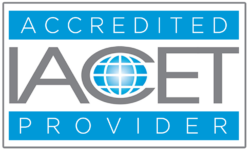As we approach the back-to-school launch in these uncertain times, do you ever feel like you are playing a game of Whac-A-Mole? As one challenge is solved, another crops up right behind it! First, you were locked down with your family, while the kids learned virtually. You had to be an educator in addition to doing your day job and keeping the house running. Now, maybe your workplace has reopened, and you can add “logistics engineer” to your resume as you manage learning, transportation, childcare and a multitude of other tasks. The challenges compound from there, when you consider the possibility of re-closure or quarantine. Are you feeling overwhelmed?
Take a deep breath … our team is here to help!
At the Institute for Excellence in Education, we have been working with educators for years to help them be adaptive as the educational landscape changes, as well as strengthen and support their practices through tools, coaching and resources.
The pandemic has forced families to rethink how they will work together to foster learning in their children. Our team can help guide and support through these major considerations for families as they rise to meet the challenges posed by the pandemic.
Make a healthy decision for your family.
Primary consideration should be given to health and safety. Are members of your household especially vulnerable to COVID-19? Do you believe that it is unsafe for your children to return to school based on their health or that of a family member? If so, you will not want to pursue instruction outside of the home but rather have those living in the home capable of either managing online learning or providing homeschool instruction be on deck.
For in-person learning at school, examine instructional capacity
If your situation allows you to send your children to their pre-pandemic school, realize that instruction will look quite different into the near future. Most schools have opted for a hybrid form of instruction in which cohorts of children attend on alternating days. On days when the children are not in attendance, there are various home-learning assignments that will be presented for completion.
Because this format sacrifices some immersion in the concepts being taught, you, the parent, may look for guidance in how to supplement the experience. Mindfulness about the specific learning objective is the critical factor here. If, for example, your student is learning fractions by baking a virtual pizza or by your side in the kitchen measuring the ingredients to bake cookies, the concepts of the fractions should be clearly stated and discussed. In the best case, even when teaching is occurring in the classroom, parents will support the content at home through explicit discussion.
Supervision is a factor.
One of the big challenges of the pandemic is the ever-changing nature of our daily lives. An outgrowth of this challenge is that whatever educational choices you have made for your child can be unpredictably upended by COVID-19 and create new circumstances outside of your control.
Thus, it is of critical importance to plan alternate supervision for your child as he or she engages in learning.
For example, the pre-pandemic school your child is attending could be suddenly closed due to an outbreak. If so, and if you went back to the workplace on what you thought would be the school-day schedule, what will you do? Who will step in to supervise and supplement online learning?
What if you have been relying on your physical workplace remaining closed into the foreseeable future (or at least through the end of 2020) and you are suddenly called back from your virtual workplace and can no longer supervise or enrich your child’s learning at home? What will you do?
Have a “Plan B,” no matter what your educational choices! That Plan B may include asking your domestic partner to take over, if he or she has the time and ability. It may include changing from a fully virtual situation at your home to a hybrid situation at your local school district. Whatever it is, you will be best positioned to solve the inevitable dilemmas that may arise if you can think through them now, before being confronted with the tough choices.
–
Schooling in the pandemic has been difficult. I know we were all happy when summer arrived and we could put the 2019-2020 school year behind us. Now here we are, ready to begin again while the pandemic still rages on.
One of the beautiful things about being an educator is that every year brings a fresh start. I am hopeful that parents seize this fresh start and grab ahold of the opportunity to make solid decisions for their children considering health and safety, instructional capacity, and supervision.

